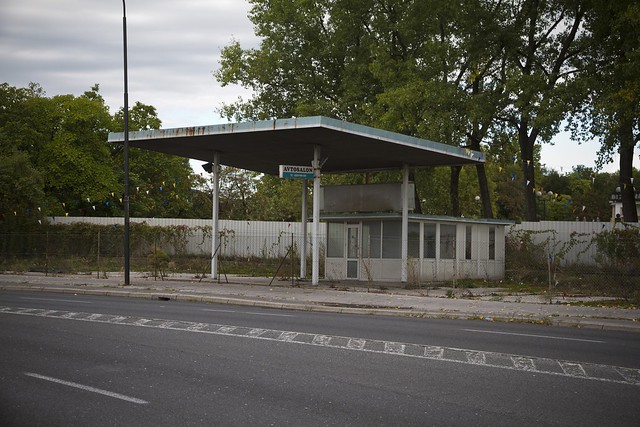

The Danish government backed out of their election promise to create congestion charges around Copenhagen last week. It boggles the mind. The car centric mood in this country is stronger than any period since the 1960s, it seems.
To highlight this point, the Danish version of MetroXpress published this article yesterday, about a new study from an analysis institute - CASA, that shows that Danish motorists have been subsidized for many years. I've translated it here:
Petrol prices that continue to rise, high environmental taxes and the risk of a congestion ring. Motorists have felt as though they are a hunted flock that politicians would rather see taking public transport.
The fact of the matter is that the State has spoiled motorists rotten over the past 20 years.
That's the conclusion in a new report that analysis institute CASA published yesterday. It shows that motorists who drove 100 km from, for example Helsinge or Herfølge to work in Copenhagen pay 17 kroner a day for the commute. The same trip cost 67 kroner in 1990 - in 2012 kroner.
" Motorists should stop whining and recognise that they have been spoiled by the Danish parliament through the years. It has never been cheaper to drive to work as it is right now ", says Senior Consultant Karl Vogt-Nielsen from CASA, to Metro Xpress.
The calculations focused on what the journey costs based on the price of petrol and tax deductions. According to Karl Vogt-Nielsen, politicians should, among other things, change the tax on petrol prices.
" Even though petrol prices have been rising, the petrol tax hasn't followed the price rises over the past ten years and therefore it's become relatively cheaper from year to year. I think the government should change that ", he explains.

Petrol taxes, however, are not something the government is willing to touch.
" When you look at how high petrol prices are now, raising petrol taxes is not the right way to go ", says the Social Democrat's tax spokesman Thomas Jensen.
It's not just the petrol tax and tax deductions that make it advantageous to drive to work, says the analysis institute. Since 2001, the previous government has lowered the registration tax on cars so much that they, according to CASA's calculations, missed out on 6.5 billion kroner ($1.18 billion) between 2001 to 2011. Add to that the low petrol taxes and the state could have put 10 billion ($1.8 billion) in its coffers.
" The question must be asked whether society is better served giving 10 billion kroner to motorists or to public transport, job creation or public health ", says Karl Vogt-Nielsen.
The government has already written a change to the registration tax into their policy, but they they aren't placing it in the state's coffers. The money is to be divided up and used, for example, making it cheaper to buy an environmentally-friendly car.
" We have committed ourselves to making a proceeds-neutral restructuring of the registration tax, and promote the spread of environmentally-friendly cars. We have to get roughly the same amount of money into the state's coffers as we do now ", says Thomas Jensen.
---
So, more cars is the conclusion from the current government. Wonderful.




